第26章 THE FIFTH - THE FIRST VISION(1)
Dr.DALE exceeded the bishop's worst apprehensions.He was a lean, lank, dark young man with long black hair and irregular, rather prolonged features; his chin was right over to the left;he looked constantly at the bishop's face with a distinctly sceptical grey eye; he could not have looked harder if he had been a photographer or a portrait painter.And his voice was harsh, and the bishop was particularly sensitive to voices.
He began by understanding far too much of the bishop's illness, and he insisted on various familiarities with the bishop's heart and tongue and eye and knee that ruffled the bishop's soul.
"Brighton-Pomfrey talked of neurasthenia?" he asked."That was his diagnosis," said the bishop."Neurasthenia," said the young man as though he despised the word.
The bishop went on buttoning up his coat.
"You don't of course want to break your vows about drinking and smoking," said the young man with the very faintest suggestion of derision in his voice.
"Not if it can possibly be avoided," the bishop asserted.
"Without a loss, that is, of practical efficiency," he added.
"For I have much to do."
"I think that it is possible to keep your vow," said the young man, and the bishop could have sworn at him."I think we can manage that all right."(2)
The bishop sat at the table resting his arm upon it and awaiting the next development of this unsatisfactory interview.
He was on the verge of asking as unpleasantly as possible when Brighton-Pomfrey would return.
The young man stood upon Brighton-Pomfrey's hearth-rug and was evidently contemplating dissertations.
"Of course," he said, as though he discussed a problem with himself, "you must have some sort of comfort.You must get out of this state, one way or another."The bishop nodded assent.He had faint hopes of this young man's ideas of comfort.
Dr.Dale reflected.Then he went off away from the question of comfort altogether."You see, the trouble in such a case as this is peculiarly difficult to trace to its sources because it comes just upon the border-line of bodily and mental things.You may take a drug or alter your regimen and it disturbs your thoughts, you may take an idea and it disturbs your health.It is easy enough to say, as some do, that all ideas have a physical substratum; it is almost as easy to say with the Christian Scientist that all bodily states are amenable to our ideas.The truth doesn't, I think, follow the border between those opposite opinions very exactly on either side.I can't, for instance, tell you to go home and pray against these uncertainties and despairs, because it is just these uncertainties and despairs that rob you of the power of efficient prayer."He did not seem to expect anything from the bishop.
"I don't see that because a case brings one suddenly right up against the frontier of metaphysics, why a doctor should necessarily pull up short at that, why one shouldn't go on into either metaphysics or psychology if such an extension is necessary for the understanding of the case.At any rate if you'll permit it in this consultation....""Go on," said the bishop, holding on to that promise of comfort."The best thing is to thrash out the case in your own way.And then come to what is practical.""What is really the matter here--the matter with you that is --is a disorganization of your tests of reality.It's one of a group of states hitherto confused.Neurasthenia, that comprehensive phrase--well, it is one of the neurasthenias.
Here, I confess, I begin to talk of work I am doing, work still to be published, finished first and then published....But I go off from the idea that every living being lives in a state not differing essentially from a state of hallucination concerning the things about it.Truth, essential truth, is hidden.Always.
Of course there must be a measure of truth in our working illusions, a working measure of truth, or the creature would smash itself up and end itself, but beyond that discretion of the fire and the pitfall lies a wide margin of error about which we may be deceived for years.So long as it doesn't matter, it doesn't matter.I don't know if I make myself clear.""I follow you," said the bishop a little wearily, "I follow you.Phenomena and noumena and so on and so on.Kant and so forth.Pragmatism.Yes."With a sigh.
"And all that," completed Dr.Dale in a voice that suggested mockery."But you see we grow into a way of life, we settle down among habits and conventions, we say 'This is all right' and 'That is always so.' We get more and more settled into our life as a whole and more and more confident.Unless something happens to shake us out of our sphere of illusion.That may be some violent contradictory fact, some accident, or it may be some subtle change in one's health and nerves that makes us feel doubtful.Or a change of habits.Or, as I believe, some subtle quickening of the critical faculty.Then suddenly comes the feeling as though we were lost in a strange world, as though we had never really seen the world before."He paused.
The bishop was reluctantly interested."That does describe something--of the mental side," he admitted."I never believe in concealing my own thoughts from an intelligent patient," said Dr.Dale, with a quiet offensiveness."That sort of thing belongs to the dark ages of the 'pothecary's art.I will tell you exactly my guesses and suppositions about you.At the base of it all is a slight and subtle kidney trouble, due I suggest to your going to Princhester and drinking the local water--""But it's excellent water.They boast of it.""By all the established tests.As a matter of fact many of our best drinking waters have all sorts of unspecified qualities.